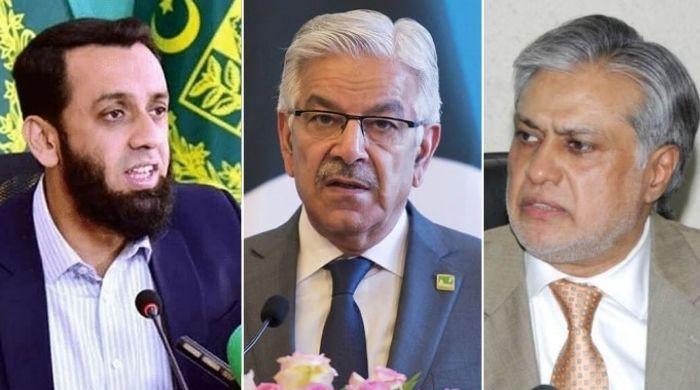Pakistan Accuses India of Exploiting Pahalgam Attack, Threatens Response
Pakistan has strongly criticized India for allegedly leveraging the Pahalgam attack, which resulted in the deaths of 26 tourists, to halt the Indus Waters Treaty for perceived domestic political advantage. Islamabad contends that New Delhi is attempting to instigate a “hydro war” without providing adequate investigation or substantiating proof.
According to reports, New Delhi has linked Islamabad to the aforementioned assault without presenting any conclusive evidence, and has taken several punitive actions aimed at downgrading bilateral relations. These measures include the suspension of the Indus Waters Treaty, the termination of visas for Pakistani citizens, and the closure of the Wagah-Attari border crossing.
Pakistan has retaliated against India’s actions and cautioned about the potential suspension of the Simla Agreement, in addition to potentially closing its airspace to Indian aircraft. Islamabad has refuted any involvement in the attack and has offered to participate in a dependable and open inquiry.
Prime Minister Shehbaz Sharif, while denouncing the unfortunate incident, has conveyed his willingness to engage in an impartial, transparent, and trustworthy investigation into the matter.
Defense Minister Khawaja Asif stated that he does not believe India stands to benefit from breaching the Indus Waters Treaty, given its international safeguards. He highlighted that India could, at some juncture, impede the flow of rivers into Pakistan by suspending the agreement, thereby endangering the nation’s water supply for irrigation and consumption purposes.
It was emphasized that the World Bank facilitated negotiations for the Indus Waters Treaty, which was ratified by both India and Pakistan in 1960.
Remarks from Defense Minister
“Where will India divert the water? It can neither redirect nor halt it entirely,” he remarked. The defense minister also observed that India has not acknowledged Pakistan’s proposal to conduct an international investigation into the Pahalgam incident, affirming Islamabad’s readiness to partake in an unbiased inquiry.
He asserted that the entire nation stands united with its armed forces and will deliver a resolute response to the Modi administration, akin to the response following the Pulwama incident.
He cautioned that any confrontation between two nuclear-armed nations would constitute a grave danger to both regional and global stability.
He further warned, “Should matters escalate, there would be no stopping us. If Modi opts to intensify tensions, we will pursue him relentlessly.”
He accused Modi of disseminating misinformation, reiterating methods employed during the Pulwama aftermath. However, he emphasized that Pakistan possesses the strength to respond effectively.
Separately, Minister for Information Attaullah Tarar briefed foreign journalists on India’s provocative measures, asserting that Pakistan is capable of responding robustly to any Indian misadventure, drawing from past demonstrations of strength.
He condemned India’s decision to suspend the Indus Waters Treaty unilaterally, stating, “It strikes me that the entire episode was orchestrated for access to a highly valuable resource, namely water.”
He characterized the suspension of the treaty as an “immature and childish” action by India.
Citing principles of public international law, he asserted, “When two parties enter into a treaty and mutually agree to its terms, that treaty cannot be unilaterally revoked, suspended, or terminated. Such actions necessitate mutual consent.”
He cautioned that targeting Pakistan’s water supply, essential for its agrarian economy, would represent “an act of usurpation, a patently unfair and unjust measure.”
Tarar reaffirmed Pakistan’s stance, stating, “The prime minister and National Security Committee have made it very clear that any attempt to divert or stop water of Pakistan will be responded with full might and power.”
The minister cautioned India against misinterpreting Pakistan’s stance as weakness.
“Let me reiterate they should not at all take our words as weakness. Pakistan has always defended itself and will continue to do so,” he said, referring Pakistan’s response post-Pulwama.
Referring to Pulwama incident of February 2019, the minister said India has tested “our patience in the past and we passed it with flying colors and India was left to regret.”
Mentioning the attack on Pakistani High Commission in London, Tarar said it is India’s extremist ideology which prompts its people to attack our foreign missions. Tarar said India had pre-conceived notions about the Pahalgam incident, may be the purpose was to pin the blame on Pakistan.
He said all allegations by India against Pakistan make no sense. He said the Pahalgam area is more than 150km away from the Line of Control, and India has not provided any singly evidence to corroborate its arguments.
In a related development, Deputy Prime Minister and Foreign Minister Ishaq Dar engaged with British Foreign Secretary David Lammy and Chinese Foreign Minister Wang Yi to brief them on India’s unilateral actions and the regional situation, according to the Foreign Office.
During his discussion with Lammy, Dar emphasized India’s unfounded propaganda, false accusations, and its unlawful decision to suspend the Indus Waters Treaty—a violation of international obligations.
He reiterated Pakistan’s resolve to defend its national interests while promoting peace and stability. Lammy stressed the need for de-escalation through dialogue, while Dar conveyed Pakistan’s readiness for an independent and transparent investigation.
In his call with Wang Yi, Dar expressed gratitude for China’s consistent support and rejected India’s unilateral measures and propaganda. Both leaders reaffirmed close coordination and their commitment to maintaining regional peace and stability.



Comments (0)
No comments yet. Be the first to comment!
Leave a Comment